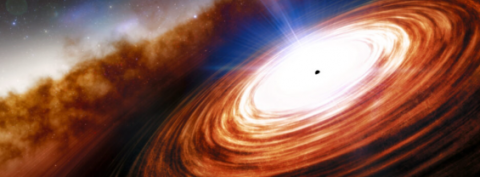The cosmic evolution of massive black holes

Martedì 18 ottobre ore 16:00
Aula Conversi
Speaker: Marta Volonteri (Institute d’Astrophysique de Paris)
Massive black holes, weighing millions to billions of solar masses, inhabit the centers of today's galaxies. Black hole masses typically scale with properties of their hosts galaxies.
The progenitors of these black holes powered luminous quasars within the first billion years of the Universe. The first massive black holes must therefore have formed around the time the first stars and galaxies appeared, and then evolved along with their hosts for the past thirteen billion years. Merging massive black holes are sources of gravitational radiation at low frequency, and they complement stellar mass black holes in the gravitational wave spectrum.
I will discuss some aspects of the cosmic evolution of massive black holes, from their formation to their growth, dynamics and mergers and how different physical processes shape the relation between black holes and galaxies.
